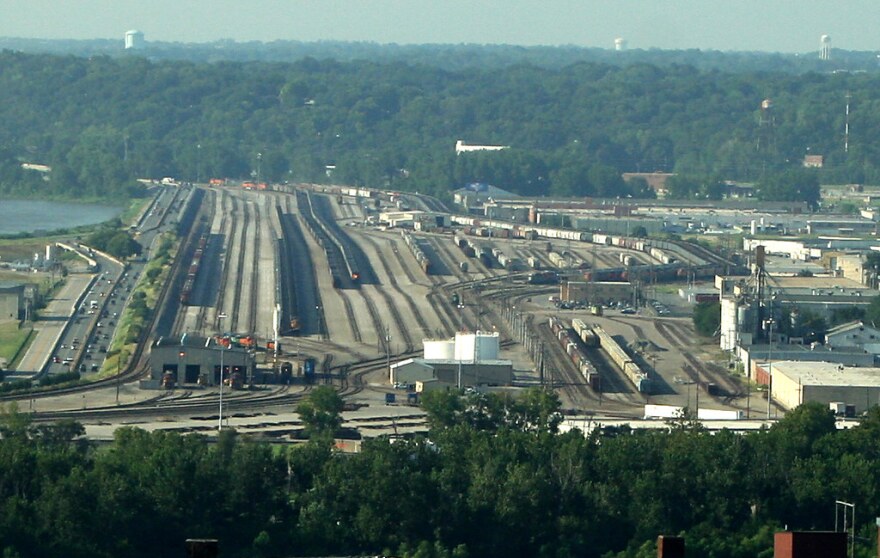After Congress intervened to avert a nationwide rail strike last week, a local railroad union leader said the agreement is mostly good for railroads, with some potential positive things for rail workers This comes as four of the 12 freight rail unions voted down a Biden-administration brokered agreement, citing the lack of paid sick days as a primary reason.
“When they said we couldn't strike [Congress], it was almost a gift to the carriers,” Kevin Knutson, a Gillette-based BNSF union leader. “The carriers are the Class I railroads and stuff, saying, ‘Okay, we tried to make it a better agreement, the union voted it down, now, we can't have them going on strike--it's just not good for the economy. So, Mr. Railroad, you're going to have to improve.’”
The Railway Labor Act, passed in 1926, regulates labor relations only when it comes to railroads and airlines. Because of this, Congress was able to impose the contracts on the four rail unions that had rejected the terms of the Biden administration’s agreement. Over the last 96 years, Congress has intervened 18 times in railroad labor negotiations, each time to prevent a strike.
The seven Class I railroads have come under fire for attendance polices that workers and unions have harshly criticized as being draconian. Knutson said while Congressional intervention avoids a strike, it also signals to the railroads that they need to be better employers.
“[Congress said] we're giving you this gift, but you have to improve because the railroads, they've done a tremendously beautiful job of making money for their owners and their stockholders, but they've really failed on the service that they've been providing for their shippers and their customers for quite some time,” Knutson said. “And of course, along with that, they failed in taking care of their employees a little bit better, so now they're under the gun.”
Knutson said he doesn’t think a strike was ever a real possibility.
“Honestly, we were never going to go on strike,” he said. “This administration, even though it might be union friendly, labor friendly, they still weren't going to let us go on strike. It was just positioning themselves to get to this point and try to get us something a little bit better. But if they couldn't, they're basically telling the companies or railroads that you need to improve not just with your relations with your employees, but with your shippers and everything else.”
One of the factors that Knutson said could lead to better conditions for workers in Wyoming is the projected increase in coal shipments next year due to high natural gas prices. Additionally, some railroad shareholders are calling on railroad companies to adopt proposals to give workers paid sick leave.
“I've already heard rumblings from Fort Worth [Texas] people [where the headquarters of BNSF are located and] I know that relations are going to change after the first of the year and we might see some good stuff,” Knutson said. “A lot of the stuff that's in the national agreement, a lot of the stuff that we want is not what the railroads wanted and here's why: if you and national agreement is set in stone, different railroads may not be able to afford some of the stuff that we want, and that's what's good about their collective bargaining team, the National Carriers Conference [Committee], they can bargain and get only maybe general wage increases and changes [in] insurance.”
The effects of losing employees and operating railroads with fewer workers is a major reason why the Class I railroads implemented more stringent attendance policies. While Knutson said that the number of employees that have quit or exited the railroads is slowing, it’s still an issue they’re having to contend with.
“After the first of the year, all these Class I railroads, they're going to be doing a lot because they've got to get a lot of people, [and] they're losing people,” he said. “We're going to increase coal out of the [Powder River] Basin, if they can, by 20 to 30 percent next year because everybody needs coal, so to get to that point, they're going to need to retain some of the people that they have and to hire some of the people, they're going to have to make it a lot better than what is general knowledge now of the working conditions on the railroad.”









